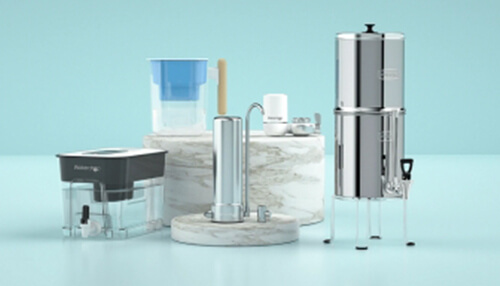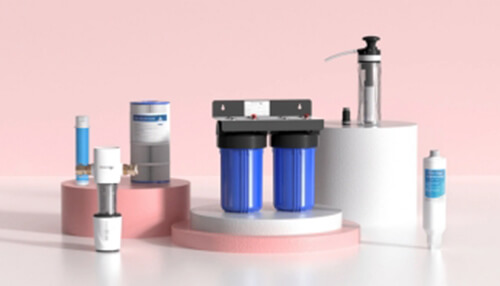Are UV Purifiers Safe?
Disinfection of water with ultraviolet light is completely safe. No dangerous chemicals are used, and the chemical composition of the water is not changed. The UV sterilizer disinfects objects by shining UV-C light on them. Humans are as susceptible to UV-C radiation as microscopic organisms. There is no risk of radiation exposure for you, though, as long as you avoid touching or looking at the UV lamp while it is on. Check here to learn more about Waterdrop filter.
UV treatment is much safer than chlorine treatment, although it is an alternative. The water is treated with ultraviolet light to kill protozoa that cannot be eliminated by chlorine disinfection. Compared to a UV system, chemical disinfectants are much more difficult to handle and maintain. The use of a catch basin and precise injections and solutions are required to treat chlorinated water. The removal of dangerous chemical byproducts from chloramine or chlorine treatment is now commonly done in wastewater treatment facilities using UV water treatment.
Are UV Purifiers Effective?
UV light disinfects water quickly. 99.99% of all aquatic organisms are rendered harmless by UV disinfection. The unit is designed for continuous operation to ensure the safety of the water you use. There are no waste materials or particles that need to be removed because there is no filter in a UV Purifier. If you are confused about what size softener for a family of four? you can get the required information on the internet or from reputed sellers.
UV Water Purifiers vs. Water Filters
Several technologies, including reverse osmosis, ultrafiltration, carbon and ceramic filters, and filters with small pores all use tiny pores in a filter or membrane to remove impurities from water. UV water purifiers do not remove impurities from water through filtration, unlike water filters. Instead of filtering out living organisms, UV treatment purifies water by irradiating it with ultraviolet light. More effective than a water filter, a UV system eliminates viruses and bacteria. UV disinfection and water filtration systems are both used to produce clean water. Check to learn Waterdrop under sink water filter system.
Is UV Required for Water Filtration?
Although UV purification is not required, a water filter is required prior to the installation of a UV system. Clearwater is ideal for UV system operation. For this reason, a pre-filter with a minimum pore size of five microns is necessary to stop living things from hiding beneath loose debris. Using a sediment filter or water softener as a pre-filter will help remove debris and dirt from the well water. The last stop for the water before it reaches the house is a UV purifier.
Benefits of UV Water Purification
- Chemical-free sterilization. Unlike chemical disinfectants, ultraviolet disinfectants do not leave byproducts in water.
- No additional taste or odor. The chemical composition of the water is not affected by UV disinfection in any way.
- Hassle-free maintenance. The UV lamp must be replaced annually, which is the most common maintenance requirement.
- No water is wasted. No need to pour water down the drain during UV treatment.
- Safe storage during natural disasters. Your drinking water is shielded from contaminated city water by a UV system.
The Drawbacks of UV Water Purification
- No removal of impurities. Only the living organisms are deactivated by UV, so pre-filtration is required to get rid of all loose particles.
- Heats the water. The water in the chamber is heated by the UV lamp when there is no running water.
- No operation during a power outage. Electricity is needed for a UV system to function.
When to Utilize a UV Purifier
UV purification is the best choice if you want extra security in event of a natural disaster or if your water is contaminated with bacteria. If the municipal water provider requests that you boil the water, it is likely already contaminated. Even if your water source is tainted, a UV system will continuously sanitize your water and keep it free from harmful pathogens.
If you don’t chemically disinfect your water and use a storage tank or a private well, you would require a UV water purifier. UV light treatment is the most effective method for removing bacteria, and it is the well owner’s responsibility to do so. To pre-filter well water before UV disinfection, a Rusco spin down filter works great.
Household UV Water Purifiers
UV systems are “point-of-entry” (POE) systems, which means they are installed to clean the water before it enters your home. A UV system can usually be operated at normal household pressure.
There are many different sizes and shapes of UV water purifiers. Depending on how quickly the water flows, you’ll need a certain size UV system. The water can stay in contact with the germicidal wavelength for a sufficient amount of time if the size is determined based on the flow rate. Just as with sizes, there are a variety of price ranges for UV systems. Typically, the price of a UV system for home use ranges from $700 to $1,200.
UV Water Purifiers for Travel
Camping, backpacking and international travel are excellent uses for portable UV water purifiers. Without subjecting you to UV rays, the Viqua Steripen sterilizes water in less than a minute. Portable UV water purifiers are available as a standalone unit or as part of a package that also includes a sediment pre-filter for water that is heavily contaminated with dirt and debris.



